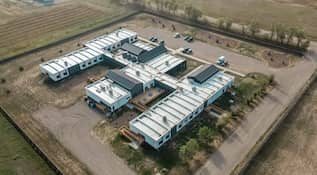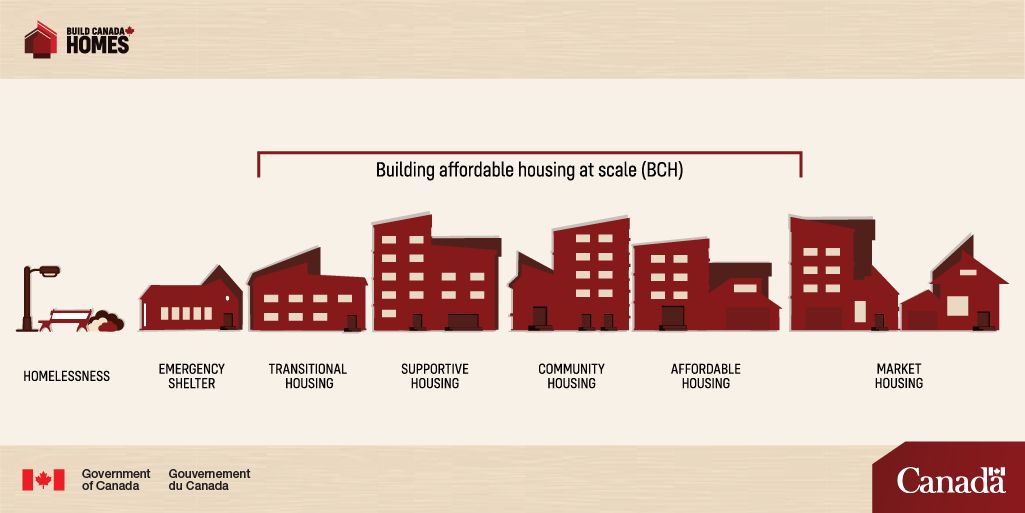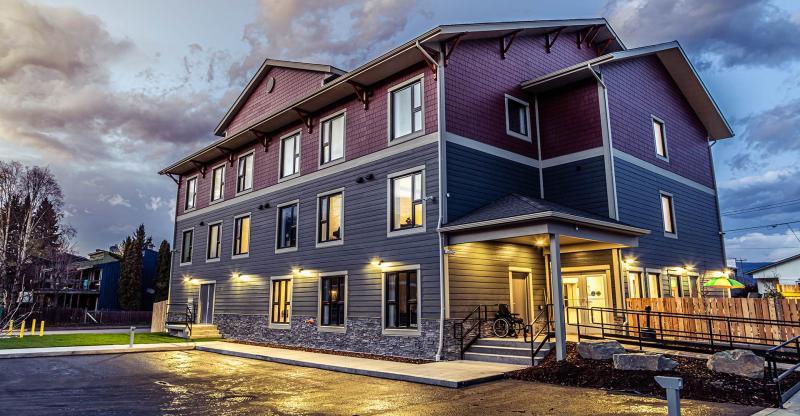The hospitality industry is all about speed, experience, and consistency. So why is hotel construction still lagging behind? As travel demand rebounds and developers face rising costs and skilled labor shortages, modular construction has emerged as a faster, more consistent, and scalable way to bring hospitality spaces to life.
And it’s not just startups jumping on the trend.
Brands like Marriott International have invested heavily in modular builds since 2017.
At ROC Modular, we’ve seen firsthand how off-site construction is speeding up hospitality projects from blueprint to booking-ready, and it’s more than just a cost play.
It’s a strategic decision.
Why the Hotel Industry is Rethinking Construction
Time really is money in the hotel world. Every day a room sits empty before opening is lost revenue, which is why so many developers are looking for ways to speed things up without sacrificing quality. Modular construction offers taht edge, often cutting construction timelines by up to 50%. That kind of time savings doesn’t just look good on a Gantt chart… it directly impacts bottom lines.
But speed isn’t the only benefit. Branded hotel groups like Marriott or Hilton depend on consistent guest experience. That means every room, from carpet to the crown modling, needs to feel the same whether you’re in Edmonton or Kelowna. Modular makes this level of consistency easier to achieve by assembling entire rooms (walls, fixtures, bathrooms…) in a controlled factory environment. That’s precision you simply can’t match with traditional on-site builds.
And let’s talk about labour. The skilled trades shortage has hit construction hard, especially in more remote or booming regions. Modular shifts much of the heavy lifting indoors, reducing the need for large on-site teams and avoiding costly slowdowns due to weather or scheduling conflicts.
Want to see how we do it? Check out our factory tour.
Marriott Modular Momentum
Here’s some inspiration.
Let’s talk about this example where Marriott International have really dove deep into modular. In 2017, they rolled out a modular initiative to help streamline the development of their limited-services hotel brands like Fairfield Inn and Courtyard.
The idea was simple: get rooms open faster, with less site disruption, and maintain brand quality across the board.
This isn’t a one-off experiment for them. Marriott has committed to modular as part of it’s long-term strategy, especially where getting to market quickly makes or breaks profitability.
For more on this: https://news.marriott.com/news/2017/05/01/marriott-international-expands-modular-construction-initiative
Repeatability and Speed: The Real ROI
Most hospitality developers arne’t building just one hotel. They’re building a portfolio. That’s where modular really shines. The ability to replicate a design across multiple locations means you’re not starting from scratch every time. Developers can fine-tune a modular design once, then roll it out again and again with predictable timelines and outcomes.
And that repeatability pays off.
Opening a hotel even three to six months earlier can result in hundreds of thousands of dollars in revenue. It also accelerates return on investment and gives developers a leg up in teh competitive markets. Plus, in dense or urban areas, modular helps minimize site disruption, keeping things quieter and cleaner for surrounding businesses and residents. This is a real factor that can make or break a zoning conversation.
The AirBNB Effect and How Modular Fits In
Another example is how AirBnB and short-term rentals have really changed the game. Now, everyone from solo-entrepreneurs to boutique resort owners are in the hospitality business. And they’re looking for ways to expand without the headache of traditional builds.
Modular construction is becoming a go-to for these operators. Some are using modular suites, tiny homes, or even luxury prefab cabins to scale their offerings. For outdoor or destination resorts, modular allows for custom finishes and architectural flair without waiting two years for a permit and foundation to be poured. Urban hosts are stacking modular units on underutilized lots. Even glamping and pop-up hotel brands are exploring modular to meet demand in creative, design-forward ways.
Modular isn’t just for the Marriotts of the world. It’s for anyone with a vision and a growth plan.
We Get It
In Western Canada, hospitality developers face a unique set of challenges:
- Tight timelines
- Tough weather
- Pressure to serve remote and urban markets
Companies like Pomeroy Lodging have long embraced the need for comfort, consistency, and speed in resource-driven communities.
At ROC Modular, we speak that language. Learn about our project for Pomery Lodging Staff Housing here.
We have a state-of-the-art facility in Bow Island, Alberta, and a team that understands hospital-grade systems like HVAC, acoustic insulation, and efficient plumbing… so truthfully, we’re built to deliver hotel spaces that last.
We’re local, we know the building codes, the climate considerations, and the operational pressures that come from hospitality development in Alberta and beyond.
Common Objections… Answered
One common myth is that modular is just for temporary buildings or job-site trailers. That couldn’t be further from the truth. Modular hotels are permanent structures, built to the same codes and lifespan expectations as any traditional build. In many cases, they exceed those expectations.
Others worry that modular means giving up on design flexibility. In reality, modular is incredibly customizable. You can still get that sleek modern lobby or spa-style bathroom. It just comes with a faster timeline and tighter quality control.
And finally, there’s this question of cost. While upfront expenses might be comparable to slightly higher in some cases, the overall savings in time, labour, and reduced risk often make modular a smarter financial decision in the long run. You’re generating revenue sooner, avoiding costly delays, and delivering a more consistent product.
Hospitality is About Experience and So is Construction
Modular construction isn’t just a building method. It’s a strategy. It helps hospitality brands deliver what they promise:
- A great experience
- Consistency
- Ready when guests are
Whether you’re building a branded hotel, a luxury boutique concept, remote staff housing, or expanding your short-term rental portfolio, modular offers a smart path forward.
At ROC, we’re here to help you move faster, build better, and stay ahead of the curve. Because in hospitality, the sooner your doors open, the sooner your story begins.




